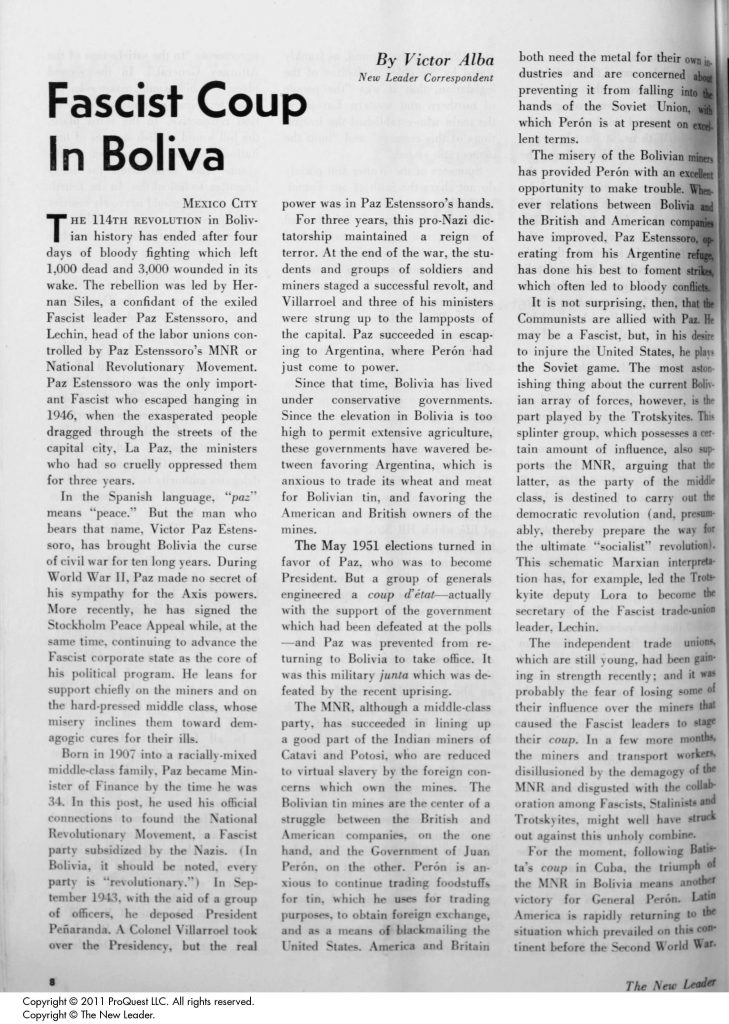
Jingoist Journalism and the National Revolutionary Movement (MNR)
This article in the New Leader, a New York-based publication, describes the rise of the National Revolutionary Movement (MNR) and its “Fascist” leader Victor Paz Estenssoro. Journalist Victor Alba takes a decided negative stance against Paz Estenssoro and the MNR, describing them simultaneously as fascists and as prospective allies of the Soviet Union.
Alba writes the article while in Mexico and demonstrates at best, a poor understanding of the political situation in the country, and at worst, jingoist propaganda. He describes the back-and-forth changing of power backed by coup d’etat between the different political factions of Bolivia. The MNR, Alba alleges, are Fascists who at one point were supported by the Nazis, and now supported by the United States current foe: The Soviet Union.
Tellingly, the article has a peculiar fascination with how the unrest will disrupt Bolivia’s tin mining industry. The transnational mining companies were one of institutions the MNR pointed too as a source of Bolivia’s problems. The tin industry was almost entirely controlled by three Bolivian families who themselves lived in Europe. The MNR argued that the mining corporations’ stranglehold on labor, government, and the press prevented the benefits of these natural resources from reaching average Bolivians. They blamed corrupt elites at home but were also aware that these were backed by US businesses.
Alba is especially concerned as to who Bolivia’s trade partners will be once Paz Estenssoro’s position is solidified: The United States, the Soviet Union, or their neighbor, Argentina. Before the rise of the MNR, the United States had been the target of Bolivian in exports. Alba’s perspective is one that strips the nation of Bolivia of agency; its people and resources are a prize to be fought over and claimed by the great powers of the world.
This focus, along with various mischaracterizations Alba makes, reveals much of the sentiments behind American foreign policy in Bolivia, as well as Latin America in general during the revolutionary (1945-1960) period. The article has conjecture over the Soviet’s influence in Bolivia, while simultaneously attempting to justify the United States imperialist ventures there.
Works Cited:
Alba, Victor. “Fascist Coup in Boliva.” New Leader, vol. 35, no. 17, Apr 28, 1952, pp. 8. ProQuest, https://search.proquest.com/docview/1308955696?accountid=15131. Accessed on January 28, 2020.
Cespedes, Augusto. “The Tin Barron” in The Bolivia Reader, Edited bySinclair Thompson, Rossana Barragan, Xavier Albo, Seemin Qayum, and Mark Goodale, Duke University Press, 2018, pp. 200-206.
Chasteen, John Charles. Born in Blood & Fire. New York: W.W. Norton Co, 2016, pp. 280.
